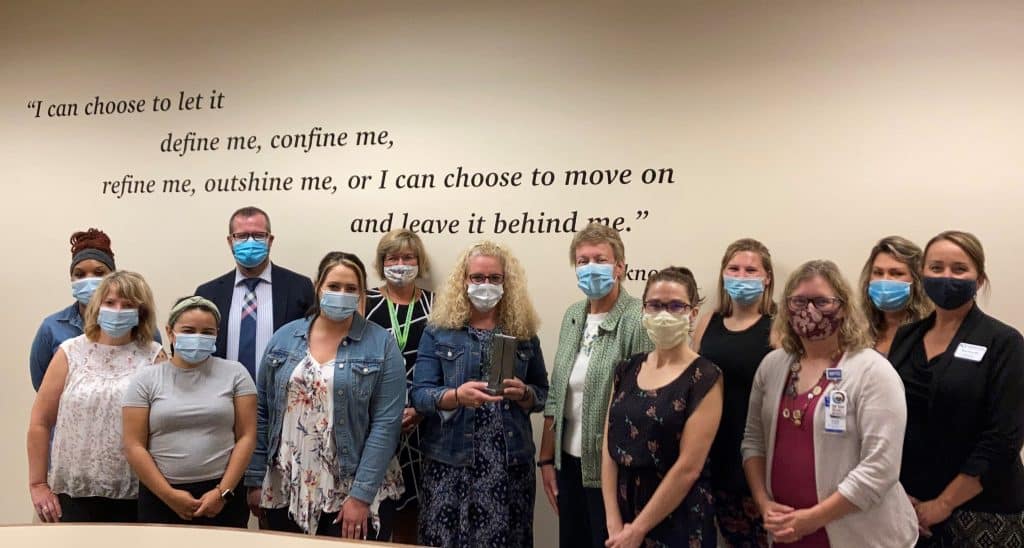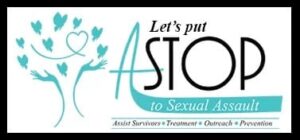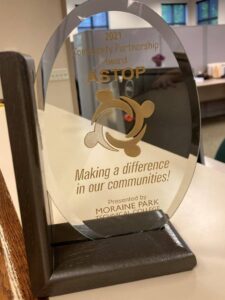
Moraine Park Technical College has presented ASTOP with its 2021 Community Partnership Award. This award recognizes a community partner organization who has gone above and beyond in their role of working with Moraine Park students in student community impact opportunities.
ASTOP
 ASTOP is a sexual assault service provider offering treatment, outreach, prevention, and advocacy. ASTOP emphasizes hope and connection to self and others, serving Fond du Lac, Green Lake and Waushara counties. In 2021, despite Covid restrictions, MPTC volunteers served over 300 hours at ASTOP and 3,500 hours overall!
ASTOP is a sexual assault service provider offering treatment, outreach, prevention, and advocacy. ASTOP emphasizes hope and connection to self and others, serving Fond du Lac, Green Lake and Waushara counties. In 2021, despite Covid restrictions, MPTC volunteers served over 300 hours at ASTOP and 3,500 hours overall!
Student Words of Reflection
 This is a very fulfilling position knowing you can help empower or even make someone smile when they are hurting inside.
This is a very fulfilling position knowing you can help empower or even make someone smile when they are hurting inside.
I learned that ASTOP is a very rewarding service provided in Fond du Lac, Green Lake and Waushara counties. ASTOP stands for Assist Survivors Treatment Outreach and Prevention. They have extensive training for staff to support survivors and the affected family members. They try and educate as much as possible through preventative education programs. about sexual abuse rape and or incest. ASTOP offers a crisis line that is available 24 hours a day and 7 days a week 52 weeks a year. Another thing that is offered through ASTOP is cost-free counseling. This helps lighten the burden of cost when one is seeking help.
The best thing I learned about what ASTOP offers was about the Art therapy. I know someone that benefited from that a great deal and was just accepted from high school with a full scholarship to an art school. She is doing amazing things and that gives me something to strive to be. Someone to change a human being’s life.
ASTOP also offers Medical Advocacy which helps victims of sexual assault and helps them through the legal system. Having this option to help people deal with whatever situation they have really helps. I am glad they have this as a option to help anyone through their life situation. Just knowing that someone or anyone is there to help is always a great option. I learned so much that I myself could be trained as a medical advocate or volunteer on the crisis line.
As we wrapped up the crisis phone call, the victim gave me the satisfaction of what I wanted to hear, “I can’t thank you enough. You’ve really made me feel empowered.” That is all I wanted to do in this position. I just wanted people to walk away after talking to me and think ‘That was a pleasant phone call’ or ‘That conversation made my day.’ This is a very fulfilling position knowing you can help empower or even make someone smile when they are hurting inside.
